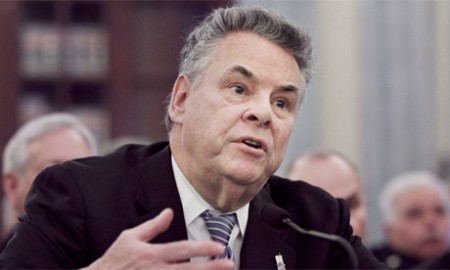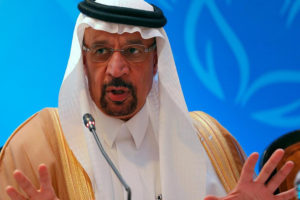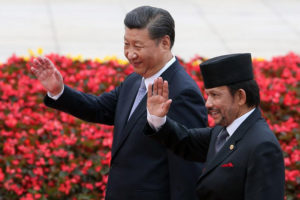
March 11 2011
On the eve of a controversial hearing by lawmakers on extremist Islam in the United States, civil rights and Muslim- American groups are warning of its potential repercussions, which they say may undermine the very intent of the proceeding.
The House of Representatives’ Committee on Homeland Security, spearheaded by Republican Peter King, will meet here Thursday morning to discuss the “The Extent of Radicalisation in the American Muslim Community and that Community’s Response” in the first of a series of contentious hearings about home-grown terrorist threats.
“His [King’s] approach is going to radicalise the young people,” said Muhammad Salim Akhtar, head of the American Muslim Taskforce on Civil Rights and Elections, at a press conference Wednesday, which included 11 Muslim-American and civil liberties groups.
“The focus of the hearings should be of greater concern for the message they send overseas as well as to communities at home,” echoed Paul Pillar, director of graduate studies at Georgetown University’s Security Studies Program and a former CIA analyst for the Middle East and South Asia, in a blog post Tuesday.
“They will be widely read as an indication that U.S. postures and policies that are ostensibly aimed at combating terrorism are really more about combating Muslims,” he warned in the ‘National Interest’. “And that reading will in turn stir more anti-Americanism among Muslims.”
President Barack Obama’s administration dispatched deputy national security advisor Denis McDonough to the All Dulles Area Muslim Society on Sunday, where he made statements that seemed designed to counter these potential readings.
“[O]f the violent extremists we’ve captured or arrested, and who falsely claim to be fighting in the name of Islam, we know that they all share one thing: They all believe that the United States is somehow at war with Islam, and that this justifies violence against Americans,” he told the audience of about 200.
“[W]e are actively and aggressively undermining that ideology,” McDonough declared. “We’re exposing the lie that America and Islam are somehow in conflict. That is why President Obama has stated time and again that the United States is not and never will be at war with Islam.”
Stoking Xenophobia
“Instead of condemning whole communities, we need to join with those communities to help them protect themselves as well,” McDonough continued. “We must resolve that, in our determination to protect our nation, we will not stigmatise or demonise entire communities because of the actions of a few.”
Critics have called Thursday’s meeting “inappropriate”, “counterproductive” and a “witch-hunt”.
Alejandro Beutel, Government and Policy Analyst for the Muslim Public Affairs Council, said at the same press conference Wednesday that the hearing was “political theatre rather than actual problem-solving”, with King “putting an entire religion on trial”.
Critics fear that the hearings will fuel the rising tide of xenophobia that has flooded the nation recently, which last year contributed to highly-publicised hostility against an Islamic community centre to be built near Ground Zero, malicious attacks against mosques throughout the country and the proposal of a “Burn the Koran Day”.
“[The] hearings, as currently proposed, do a disservice to the seriousness of the topic of ‘domestic terrorism’ and are likely to contribute to a public backlash against Muslim Americans,” wrote the Leadership Conference on Civil and Human Rights – a coalition of over 200 organisations – in a letter to King dated Feb. 4.
In prior statements and in a series of media interviews leading up to Thursday’s hearing, King has erroneously claimed that 80 to 85 per cent of mosques are controlled by radical Islamists – a claim that has been widely debunked. He has also alleged that Muslim community leaders are uncooperative with law enforcement and impede the process of finding and exposing potential extremists.
“Our community organisations have, for a long time, been playing a frontline role,” countered Beutel. Instead of rhetoric, “[w]e need to let the data lead the discourse,” he argued, citing a joint Duke University and University of North Carolina report that found that 40 per cent of terrorist suspects apprehended since the Sep. 11, 2001 attacks were reported to authorities by fellow Muslims.
“We believe that these [King’s] baseless accusations…will put the Muslim population in danger,” Naeem Baig, vice president of Public Affairs for the Islamic Circle of North America, told reporters Wednesday.
Misplaced Priorities
Many groups have urged that the hearings be cancelled. Instead, Akbar Ahmed, professor of Islamic studies at American University, argued in the New York Times Tuesday that the proceedings should take place and be used as “an opportunity to educate Americans about [the Muslim] community’s diversity and faith”.
“Muslims should embrace the chance to explain their beliefs fully and clearly. We have nothing to hide,” Ahmed said. “But members of Congress also need to act responsibly. They should avoid broad accusations, and be aware that the hearings will be closely followed worldwide.”
“We’re not in denial in our community that something is going on…There are bad elements in every community” explained Imam Johari Abdul-Malik, representing the Council of Muslim Organisations in Wednesday’s press conference. The issue is King’s approach, the speakers contended.
“Congress simply has no business examining Americans’ religious or political beliefs in official hearings – even if these beliefs are considered ‘radical’ by some,” 42 civil liberties and free speech organisations wrote in a letter to King and other leading lawmakers dated Tuesday.
“Fear and misunderstanding should not drive our government policies,” asserted the rights groups, which included the ACLU, Council on American-Islamic Relations (CAIR) and Friends of the Earth.
Meanwhile, accused of scape-goating and fear-mongering, King defends the hearings as “essential”, while supporters claim they are overdue.
“It should…be no surprise that such [critical] groups have been aggressively vilifying the chairman as a ‘racist’ and ‘bigot’, assailing his choice of witnesses, including an authentic Muslim reformer, Dr. Zuhdi Jasser, and denouncing the whole hearing enterprise as an example of ‘Islamophobia’ and McCarthyism,” wrote Frank Gaffney, president of the Centre for Security Policy, in the ‘Washington Times’ Tuesday.






